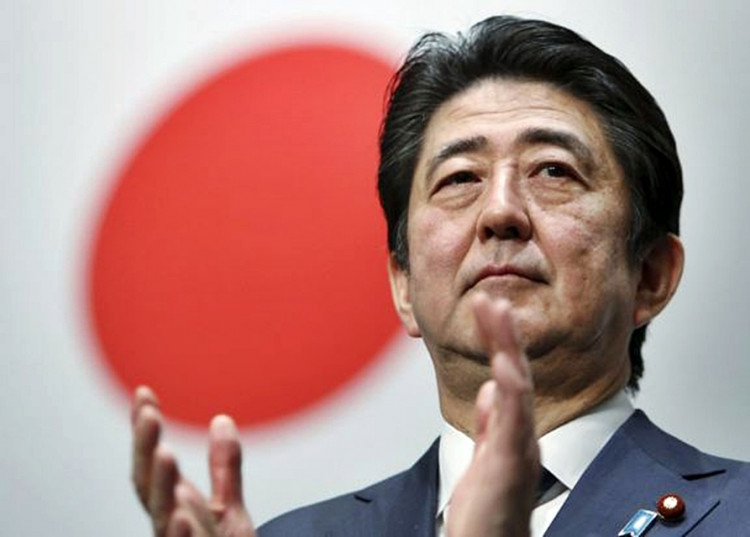Japan's hawkish Prime Minister Shinzo Abe is expected to easily defeat a challenge to his leadership of the Liberal Democratic Party (LDP) tomorrow (Sept. 20), making him post-war Japan's longest-serving leader. He will serve as prime minister for three more years after his election as LDP president.
Abe's renewed hold on power will place him on track to realize his greatest political aim -- updating Japan's pacifist Constitution to allow Japan to wage war as an instrument of national policy.
Abe, 63, became prime minister in 2012. His position as LDP president is again being challenged by former Minister of Defense Shigeru Ishiba, who is currently Minister for Overcoming Population Decline and Vitalizing Local Economy. Ishiba challenged Abe for the LDP leadership in 2012 and failed. Abe then went on to become prime minister.
A self-described "military geek," Ishiba is more of a hawk on defense than Abe. Like Abe, he also wants to make controversial changes to the Constitution.
Opinion polls show Abe way ahead of Ishiba, who is running for party president this time to "restore confidence in the government, which should be at the service of citizens." Ishiba has been strongly critical of the Abe administration's involvement in alleged influence-peddling and sexual harassment cases.
For many political analysts, Abe's win is a foregone conclusion. The issue is not whether Abe will win or lose, it is how he wins, according to Yu Uchiyama, the political scientist from the University of Tokyo. Abe has to win by an overwhelming landslide victory to avoid becoming a lame duck and igniting another challenge to his undisputed hold on the LDP.
Abe has never been shy about his desire to rewrite Japan's totally pacifist 1947 Constitution, which was imposed by the victorious United States. American forces occupied Japan until 1951. The American-dictated Constitution forces Japan to "forever renounce war" and dictates that Japanese armed forces will "never be maintained".
Only recently, Abe said the revision of the Constitution "is a long-held policy goal" of the LDP. We can't only keep discussing it, he pointed out.
Abe said the changes he wants will give Constitutional legality to the Japan Self-Defense Force (JSDF), the Japanese armed forces, which shouldn't technically exist under a strict interpretation of the Constitution.
China and the two Koreas, the two main victims of Japanese militarism in World War II, will react with fury to any change to the Japanese Constitution that does away with the provision Japan will "forever renounce war."
Most Japanese also see no reason to amend the Constitution despite Abe's repeated pleadings. More importantly, most voters simply don't see a revision as a top priority for the government and Diet. Any change to the Constitution will need to be ratified by a referendum, which carries immense political risks for Abe if voters defeat the changes.






